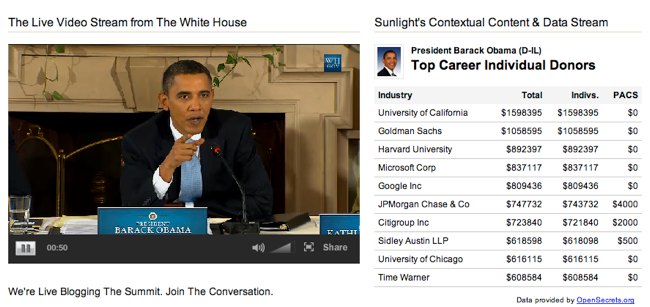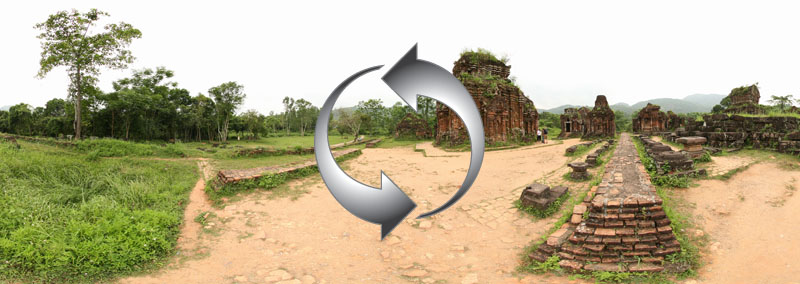


A beautiful sunrise. A recent evening panoramic scene of “The Strip” can be seen here.
Category: Culture
Panorama: Austin-Bergstrom International Airport
Honolulu’s Kapiolani Farmers’ Market

Click to view the photos.
Fabulous: Health Care Video Stream with Campaign Contributions…

The Sunlight Foundation provides a great service here.
If Our Grandparents Could See Us Now
“The OECD rates Canada’s banks as the safest in the world – the United States comes in fortieth, two places behind Botswana.”
— From I.O.U., by John Lanchester
There’s always a pile of new books near my desk; currently, most of them deal with the history of the financial crisis. When time allows I open a couple more, read them and mark key points with highlighters for easier reference. It’s always gratifying to find a passage in which a well-regarded economics writer makes the same points I have in my work, but I like books even better when they teach me things I did not already know.
An example: Barry Rithholtz, a market commentator, put the total cost of the current bailout in terms that most anyone can understand. It is now more than the nation spent for “The Marshall Plan, the Louisiana Purchase, the Apollo moon landings (and all costs of NASA’s space flights), the Korean War, the Vietnam War, FDR’s New Deal, the Invasion of Iraq and the 1980s Savings and Loan Scandal, combined and adjusted for inflation.”
That statement alone should have the public up in arms, demanding smart actions that will make sure it never happens again.
The books I’ve been reading lately also cover the fundamental economic theories of both John Maynard Keynes and Milton Friedman. Keynes is known for promoting government deficit spending in hard times, while Friedman believes in deregulating and privatizing everything. What I now find interesting is that nobody carrying the banner of either of these two economic giants seems to get Keynes’ or Friedman’s fundamental economic viewpoints entirely right.
Winter

LeMonde’s iPhone app has an interesting daily photo selection.
Why the Technology Sector Should Care About Google Books
Gary Reback @ TechCrunch:
Antitrust lawyer and Open Book Alliance leader Gary Reback has been called the “antitrust champion” and the “protector of the marketplace” by the National Law Journal, and has been at the forefront of many of the most important antitrust cases of the last three decades. He is one of the most vocal opponents of the Google Books settlement. I interviewed Reback a few months ago, and Google Books was one of the topics we discussed. In the column below, Reback discusses Google Books and its ties to Google search.
This Thursday leaders of the international publishing industry will watch with bated breath as a federal judge in New York hears arguments over whether to approve the Google Book Settlement.
More a complicated joint venture among Google and five big New York publishers than the resolution of pending litigation, the proposed settlement once promised unprecedented access to millions of out-of-print books through digital sales to consumers and online research subscriptions for libraries. But with the passage of time and the ability to examine the deal more closely, the promises proved illusory. The big publishers, as it turns out, have reserved the right to negotiate secret deals with Google for the books they claim through the settlement (pdf).
Meanwhile, torrents of outrage rained down on the New York court – from authors whose ownership rights will be appropriated through the settlement’s procedures, from librarians fearful of price exploitation by Google, from privacy advocates worried that Google will monitor the reading habits of library patrons, from libertarians incensed over the use of a legal procedure to effect the widespread appropriation of property, from digital booksellers concerned about Google’s unfair advantage in the marketplace.
Cham Ruins: My Son Panorama – Another View
This Cham Ruins panorama (click to view) was captured in My Son, Vietnam during the month of April, 2007 by Jim Zellmer
Another panoramic scene.
Hanoi Panorama: Temple of Literature, Another View

Click to view the panoramic image. Enjoy a full screen view by clicking the panorama icon in the lower right. Clusty Search: Temple of Literature.
Another Temple of Literature panorama can be seen here.
Iceland aims to become an offshore haven for journalists and leakers
On Tuesday, the Icelandic parliament is expected to introduce a measure aimed at making the country an international center for investigative journalism publishing, by passing the strongest combination of source protection, freedom of speech, and libel-tourism prevention laws in the world.
Supporters of the proposal say the move would make Iceland an “offshore publishing center” for free speech, analogous to the offshore financial havens that allow corporations to hide capital from authorities. Could global news organizations with a home office in Reykjavík soon be as common as Delaware corporations or Cayman Islands assets?
“This is a legislative package to create a haven for freedom of expression,” Icelandic member of parliament Birgitta Jónsdóttir confirmed to me, saying that a proposal for comprehensive media law reform will be filed in parliament on Tuesday, and that whistle-blowing specialists Wikileaks has been involved in drafting it. There have been persistent hints of an Icelandic media move in recent weeks, including tweets from Wikileaks and a cryptic message from the newly created @icelandmedia Twitter account.
The text of the proposal, called the Icelandic Modern Media Initiative, is not yet public, but the most detailed evidence comes from a video of a talk by Julian Assange and Daniel Schmitt of Wikileaks, given at the Chaos Communications Congress hacker conference in Berlin on Dec. 27:

